
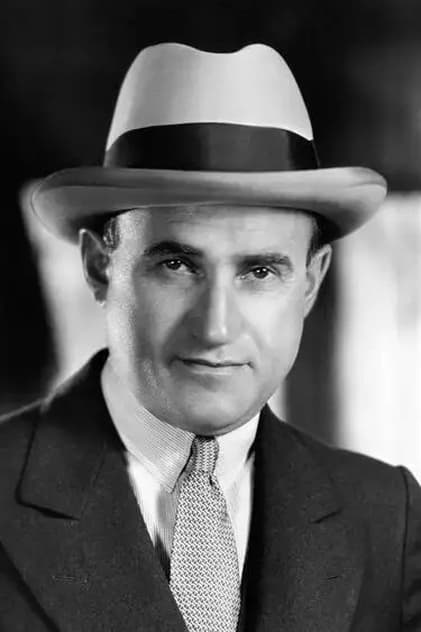
Samuel Goldwyn
Born: August 17, 1879
Died: January 31, 1974
in Warsaw, Poland
Died: January 31, 1974
in Warsaw, Poland
Samuel Goldwyn (born Szmul Gelbfisz), also known as Samuel Goldfish, was a Polish American film producer. He was most well known for being the founding contributor and executive of several motion picture studios in Hollywood. In 1916, Goldwyn partnered with Broadway producers Edgar and Archibald Selwyn, using a combination of both names to call their movie-making enterprise Goldwyn Pictures. Seeing an opportunity, Samuel Gelbfisz then had his name legally changed to Samuel Goldwyn, which he used for the rest of his life. Goldwyn Pictures proved successful but it is their Leo the Lion trademark for which the organization is most famous. On April 10, 1924, Goldwyn Pictures was acquired by Marcus Loew and merged into his Metro Pictures Corporation. Despite the inclusion of his name, Goldwyn had no role in the management or production at Metro-Goldwyn-Mayer. Before the sale and merger of Goldwyn Pictures in April 1924, Goldwyn had established Samuel Goldwyn Productions in 1923 as a production-only operation (with no distribution arm). Their first feature was Potash and Perlmutter, released in September 1923 through First National Pictures. Some of the early productions bear the name Howard Productions, named for Goldwyn's wife Frances Howard. For 35 years, Goldwyn built a reputation in filmmaking and developed an eye for finding the talent for making films. William Wyler directed many of his most celebrated productions, and he hired writers such as Ben Hecht, Sidney Howard, Dorothy Parker, and Lillian Hellman. (According to legend, at a heated story conference Goldwyn scolded someone —in most accounts Mrs. Parker, who recalled he had once been a glove maker— with the retort: “Don't you point that finger at me. I knew it when it had a thimble on it!” During that time, Goldwyn made numerous films and reigned as the most successful independent producer in the US. Many of his films were forgettable; his collaboration with John Ford, however, resulted in Best Picture Oscar nomination for Arrowsmith (1931). William Wyler was responsible for most of Goldwyn's highly lauded films, with Best Picture Oscar nominations for Dodsworth (1936), Dead End (1937), Wuthering Heights (1939), The Little Foxes (1941) and The Best Years of Our Lives (1948). The leading actors in several of Goldwyn films, especially those directed by William Wyler, were also Oscar-nominated for their performances. Throughout the 1930s, Goldwyn released all his films through United Artists, but beginning in 1941, and continuing almost through the end of his career, Goldwyn released his films through RKO Radio Pictures. Goldwyn died at his home in Los Angeles in 1974 from natural causes, at the probable age of 94. He was interred in the Forest Lawn Memorial Park Cemetery in Glendale, California. In the 1980s, Samuel Goldwyn Studio was sold to Warner Bros. There is a theater named after him in Beverly Hills and he has a star on the Hollywood Walk of Fame at 1631 Vine Street.
Movies for Samuel Goldwyn...

Title: Salinger
Character: Self - Film Producer (archive footage)
Released: September 6, 2013
Type: Movie
An in-depth investigation into the private world of the American writer J. D. Salinger (1919-2010), who lived most of his life behind the impenetrable wall of a self-imposed seclusion: how his dramatic experiences during World War II influenced his life and work, his relationships with very young women, his obsessive writing methods, his many literary secrets.

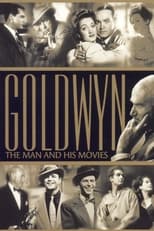
Title: Goldwyn: The Man and His Movies
Character: Self (archive footage)
Released: October 7, 2001
Type: Movie
The life and work of Samuel Goldwyn, a Polish-born glove salesman who became one of Hollywood's greatest independent producers, is remembered in this classy documentary created for the PBS American Masters series. Based on A. Scott Berg's acclaimed biography, the film includes new interviews with Goldwyn's surviving family members as well as vintage interviews with such luminaries as Bette Davis, John Huston, Laurence Olivier and others.



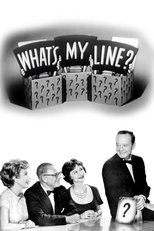
Title: What's My Line?
Character: Self - Mystery Guest
Released: February 2, 1950
Type: TV
Four panelists must determine guests' occupations - and, in the case of famous guests, while blindfolded, their identity - by asking only "yes" or "no" questions.

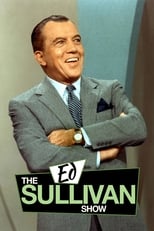
Title: The Ed Sullivan Show
Character: Self - Award Presenter (archive footage)
Released: June 20, 1948
Type: TV
The Ed Sullivan Show is an American TV variety show that originally ran on CBS from Sunday June 20, 1948 to Sunday June 6, 1971, and was hosted by New York entertainment columnist Ed Sullivan. It was replaced in September 1971 by the CBS Sunday Night Movie, which ran only one season and was eventually replaced by other shows.
In 2002, The Ed Sullivan Show was ranked #15 on TV Guide's 50 Greatest TV Shows of All Time.


Title: The Ed Sullivan Show
Character: Self (archive footage)
Released: June 20, 1948
Type: TV
The Ed Sullivan Show is an American TV variety show that originally ran on CBS from Sunday June 20, 1948 to Sunday June 6, 1971, and was hosted by New York entertainment columnist Ed Sullivan. It was replaced in September 1971 by the CBS Sunday Night Movie, which ran only one season and was eventually replaced by other shows.
In 2002, The Ed Sullivan Show was ranked #15 on TV Guide's 50 Greatest TV Shows of All Time.


Title: The Ed Sullivan Show
Character: Self
Released: June 20, 1948
Type: TV
The Ed Sullivan Show is an American TV variety show that originally ran on CBS from Sunday June 20, 1948 to Sunday June 6, 1971, and was hosted by New York entertainment columnist Ed Sullivan. It was replaced in September 1971 by the CBS Sunday Night Movie, which ran only one season and was eventually replaced by other shows.
In 2002, The Ed Sullivan Show was ranked #15 on TV Guide's 50 Greatest TV Shows of All Time.

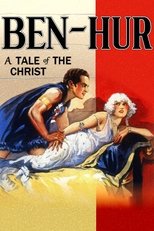
Title: Ben-Hur: A Tale of the Christ
Character: Chariot Race Spectator (uncredited)
Released: December 25, 1925
Type: Movie
Erstwhile childhood friends, Judah Ben-Hur and Messala meet again as adults, this time with Roman officer Messala as conqueror and Judah as a wealthy, though conquered, Israelite. A slip of a brick during a Roman parade causes Judah to be sent off as a galley slave, his property confiscated and his mother and sister imprisoned. Years later, as a result of his determination to stay alive and his willingness to aid his Roman master, Judah returns to his homeland an exalted and wealthy Roman athlete. Unable to find his mother and sister, and believing them dead, he can think of nothing else than revenge against Messala.
